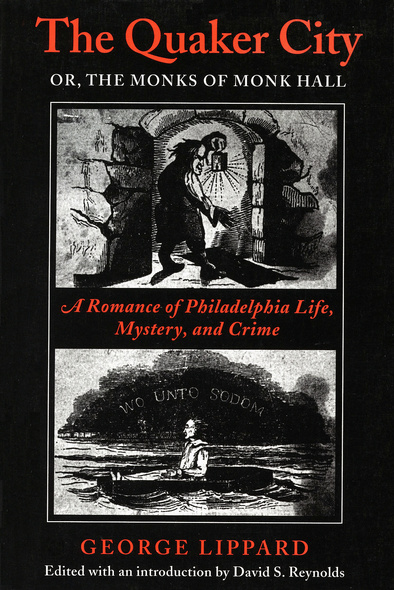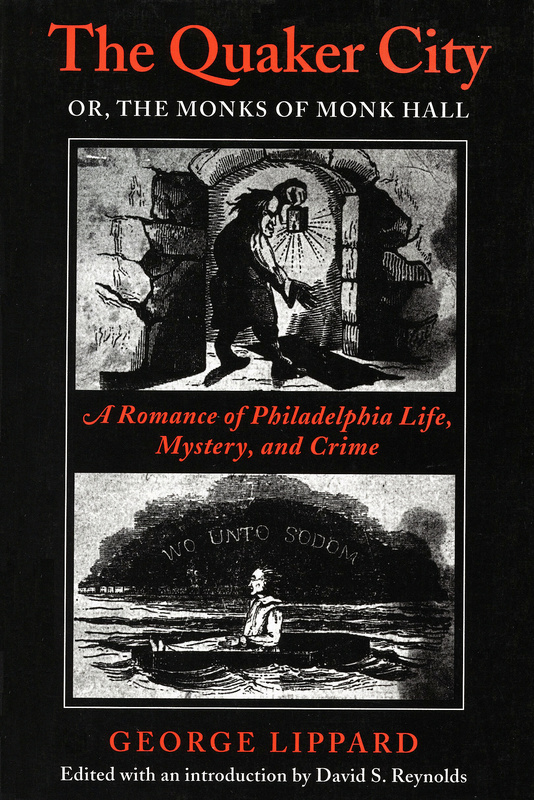The Quaker City, or The Monks of Monk Hall
A Romance of Philadelphia Life, Mystery, and Crime
By George Lippard; Edited by David S. Reynolds
University of Massachusetts Press
America's best-selling novel in its time, The Quaker City, published in 1845, is a sensational exposé of social corruption, personal debauchery, and the sexual exploitation of women in antebellum Philadelphia. This new edition, with an introduction by David S. Reynolds, brings back into print this important work by George Lippard (1822-1854), a journalist, freethinker, and labor and social reformer.
The Monks of Monk Hall deserves always to be in print. A thoroughly challenging book, it contains much that is surprising and greatly illuminates urban America in its period. . . . It would make a superb supplemental reading for the first half of the U.S. history survey, raising vital issues regarding race, gender, and religion in antebellum America. . . . No scholar is more knowledgeable on George Lippard that David Reynolds.'—David Roediger, University of Minnesota, Twin Cities
'In The Quaker City, Lippard is negotiating a great many early nineteeth-century concerns over transitions in the status of masculinity and femininity in working- and middle-class cultures. . . . The book will have a terrific appeal in American literature courses, given the current focus on both canon expansion and the 'new historicism.' It should also find a home in courses in American studies, U.S. history, and women's and gender studies.'—Dana D. Nelson, Louisiana State University
'Lippard is essential to any revisionist study or examination of nineteenth-century American literature, to nineteenth-century social history, to popular culture, to historical cultural studies, and to working-class history and literature.'—Sheila Post-Lauria, University of Massachusetts, Boston
Professor of English at Baruch College and the Graduate Center, CUNY, David S. Reynolds is author of numerous books, including Walt Whitman's America: A Cultural Biography and the prize-winning Beneath the American Renaissance: The Subversive Imagination in the Age of Emerson and Melville.






